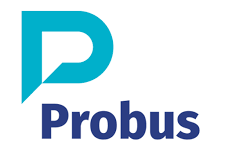- Traffic flow will improve significantly, eliminating delays and reducing travel time by 20–30%, saving 8–10 minutes per toll point
- Environmental benefits include a reduction of 5 million tons of carbon emissions annually and fuel cost savings of approximately ₹12,000 crores per year
New Delhi, January 16, 2025 – Primus Partners, in collaboration with Think Infra, unveiled a thought paper titled “Barrierless Tolling in India: Towards Efficient, Sustainable & Innovative Infra”. The paper was launched at an event held at the India International Centre, New Delhi, in the presence of Shri Nitin Gadkari, Hon’ble Minister of Road Transport & Highways, and Shri Santosh Kumar Yadav, Chairman, NHAI. The launch brought together key stakeholders, including Shri A.S. Kiran Kumar, Former Chairman of ISRO, and Shri A R Chitranshi, COO of the Indian Highways Management Company Limited, alongside other industry leaders from Telematika, Kapsch, Skytoll to discuss the roadmap for an efficient, sustainable, and innovative GNSS-based barrierless tolling solution, aligning with advanced technology standards, addressing critical policy considerations, etc. to modernise India’s tolling infrastructure.
India’s road infrastructure is expanding rapidly, driven by the government’s vision for a ‘Viksit Bharat.’ However, the tolling ecosystem faces challenges such as congestion, inefficiencies, and environmental impact. Modern solutions like GNSS-based barrierless tolling systems have emerged as a way forward, promising faster commutes, transparent operations, and sustainability.
Primus Partners and Think Infra recognised the need for actionable strategies to transition to barrierless tolling and conducted extensive research and stakeholder consultations. The approach paper draws insights from international best practices and offers a roadmap for implementing GNSS-based tolling in India, emphasising technology integration, policy frameworks, and governance measures.
Shri Nitin Gadkari, Hon’ble Minister of Road Transport and Highways, stated, “The GNSS-based barrierless tolling solution is a forward-thinking initiative that will not only enhance traffic flow and reduce congestion but will also bring significant environmental benefits. I am committed to supporting this transformative plan, which aligns with the Government’s vision of a sustainable and efficient transportation network. We will take immediate steps to integrate these solutions and work closely with all stakeholders to ensure its successful implementation, driving both operational efficiency and substantial reductions in carbon emissions. This initiative is an important step towards realising our goal of a ‘Viksit Bharat’ and a greener future.”
Key Highlights:
- Efficiency Gains: Reduction in travel time by 20–30%, saving 8–10 minutes per toll point on average
- Environmental Impact: Annual reduction of 5 million tons in carbon emissions and fuel savings of ₹12,000 crores
- Revenue Optimisation: Improved toll collection efficiency by 15–20%, translating to an additional ₹10,000 crores in annual revenue
- Technology Integration: Real-time toll collection using GNSS technology ensures accuracy and scalability
The event also featured insightful panel discussions with experts such as Shri Akhilesh Srivastava, President of ITS India Forum, Shri Rajeev Gambhir, DG at SatCom Industry Association-India, Shri Rahul Choube, Head of Urban Mobility at VISA, Rajiv Gupta, President at Policy Bazaar and Shri Aman Gera, Partner at AZB Partners. Discussions covered a wide range of topics, including the transition from RFID to GNSS systems, data privacy standards, and implementation strategies.
Arun Moral, Managing Director, Primus Partners shared, “The GNSS-based tolling system is a game-changer for India’s highways, addressing congestion, enhancing revenue collection by 15-20%, and cutting 5 million tons of carbon emissions annually. Leveraging NavIC technology, this initiative showcases how indigenous innovation can transform infrastructure for efficiency and sustainability.”
Vaibhav Dange, Director, Think Infra said, “India’s highways are transforming into smart corridors of progress-where innovation drives seamless, sustainable travel and opportunities abound. The GNSS-based tolling system powered homegrown technology, marks a monumental shift towards smarter greener mobility, unlocking boundless opportunities for every commuter and every corner of our nation.”
This approach paper marks a significant step toward creating a seamless and efficient tolling infrastructure in India. With continued collaboration among stakeholders and the integration of advanced technologies, the initiative aims to address current challenges and pave the way for sustainable highway operations.
 Newspatrolling.com News cum Content Syndication Portal Online
Newspatrolling.com News cum Content Syndication Portal Online







